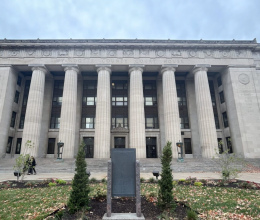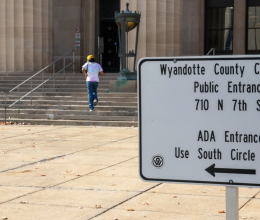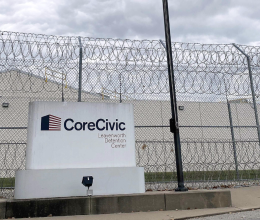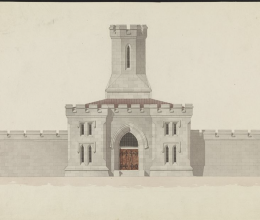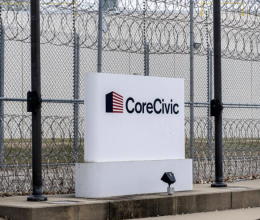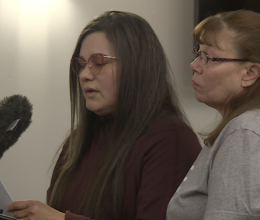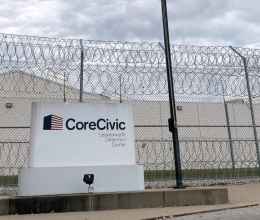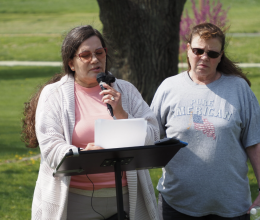
Proponent Testimony for HB 2697
Aileen Berquist, Community Engagement Manager,
American Civil Liberties Union of Kansas
House Committee on Judiciary Thursday, February 17, 3:30 PM – 582-N
Committee Chairs and Members of the Committee,
Thank you for the opportunity to present testimony today. My name is Aileen Berquist. I am the Community Engagement Manager and lobbyist for the ACLU of Kansas. We are a nonpartisan, non-profit organization that works to preserve and strengthen the civil rights and liberties of every person in Kansas.
People with serious mental illness who are charged with crimes and who are unable to assist in their own defense may be ordered by the criminal court to undergo a competency evaluation, and, depending on the results of that evaluation, be ordered to receive competency restoration services. Under current state law, those individuals generally receive the evaluation and restoration services at Larned State Hospital. However, due to staffing shortages at the state hospital, people are waiting for long periods of time—sometimes for 11 months or more. In some cases, individuals are spending more time in jail awaiting their evaluation or restoration services than they would if convicted on their underlying charges.
During their wait, these individuals are held in county jails that are not equipped to handle complex mental health needs. Many individuals may be held in solitary confinement, or refuse medication, which further compounds their mental distress. This situation is dire and, though this bill does take important steps, it is not a complete solution to the problem.
The ACLU of Kansas supports provisions in HB 2697 that, if implemented correctly, will decrease the wait time for competency evaluations and restoration services. Jails are no place for people with serious mental illness, or SMI. Quickly evaluating and treating individuals with SMI is vital to ensuring that they do not remain incarcerated in county jails for long periods of time. It is also a fundamental part of ensuring due process of law. Likewise, we support measures that would allow people to be treated in integrated, community-based settings wherever possible, in line with the ADA and the Supreme Court’s decision in Olmstead v LC. In particular, we support those provisions that:
- Expand the options for mobile evaluation or telehealth evaluations, to reduce the wait times for competency evaluations under KSA 22-3302.
- Expand the type of service providers authorized to provide restoration services under KSA 22-3303, to include appropriate psychiatric or psychological clinics or facilities, mental health centers, and in or out-patient facilities, depending on the needs of the individual, thus potentially lessening the individual’s wait time.
Our continued concern is that this bill will not do enough to fix the very broken system managing evaluations and restorations in our state. We also encourage community based evaluation and restoration services for all individuals who can be safely treated in the community, regardless of the underlying charges. As stated above, pretrial detainees often wait for months to be evaluated or receive services, depriving them of their liberty in the meantime. Several federal courts have found this practice to be unconstitutional.1 This is because the Supreme Court has found that “indefinite commitment of a criminal defendant solely on account of his incompetency to stand trial does not square with the Fourteenth Amendment’s guarantee of due process.”2
Again, the ACLU of Kansas supports HB 2697 and all measures that will decrease the wait time for detainees so that their due process rights are respected. Thank you for your time.
1Oregon Advocacy Center v. Mink, 322 F.3d 1101, 1121 (9th Cir. 2003)
2Jackson v Indiana
